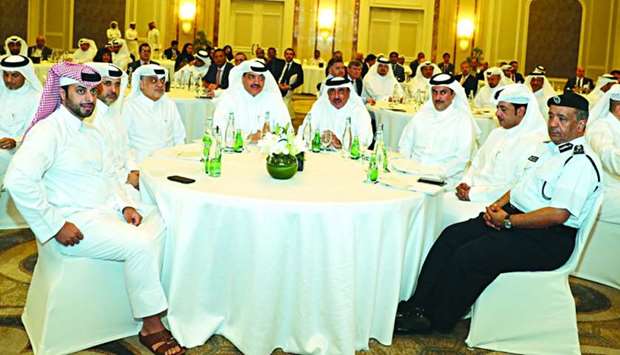The launching ceremony was led by HE the Minister of Transport and Communications Jassim Seif Ahmed al-Sulaiti in the presence of HE the Minister of Municipality and Environment Mohamed bin Abdullah al-Rumaihi.
The programme was developed as part of the MoTC’s ongoing efforts to respond to key strategic transport requirements for the nation in alignment with the Qatar National Vision 2030.
The QTRP will be completed across five phases, supporting the development of an integrated transport resilience framework for Qatar, including management and monitoring of key threats and risks and the establishment of a national Transport Co-ordination Centre (TCC) to support the country’s intermodal operations.
In a statement, the MoTC said one of the key benefits of the framework is to facilitate co-operation and co-ordination across the transport sector’s relevant entities.
Speaking at the launch event, Sheikh Mohamed bin Khalid al-Thani, director of Technical Affairs Department at the MoTC, said Qatar’s economy “has been witnessing a growing boom” under the wise leadership of His Highness the Emir Sheikh Tamim bin Hamad al-Thani.
Sheikh Mohamed added that transport system in Qatar “was witnessing a rapid growth and continuing changes concurrently with huge investments into transport network infrastructure.”
He noted that “the few coming years would be the best demonstration” of the MoTC’s efforts for developing the performance of all transport mediums across the country, particularly with the operation of railroad networks and the upgrading of public transport services that support sustainable social and economic progress.
The plan of action being executed by the ministry was inspired from the Qatar National Vision 2030, he said.
“That plan provides the requirements for all the new transport infrastructure investments and its key priority is to ensure such investments deliver the expected transport benefits in a safe, consistent, and reliable manner, and the programme launched today is a central element of that plan,” Sheikh Mohamed said, adding that “resilience is no longer an option but is continually becoming a necessity that drives all economies.”
For the successful deployment and execution of the programme, Sheikh Mohamed said the transport minister had issued directives to establish a working group for the transport resilience project to develop the required framework.
He added that the working group would include representatives from transport and transport-related sectors in Qatar, in addition to industry consultants and experts.
The programme working group will collaborate through workshops and joint committees, he said.
During the event, the working group in charge of the programme at the ministry delivered a presentation on the importance of the QTRP, a roadmap to resilience, and relevant case studies citing similar programmes that are in place in other countries.

HE the Minister of Transport and Communications Jassim Seif Ahmed al-Sulaiti is joined by HE the Minister of Municipality and Environment Mohamed bin Abdullah al-Rumaihi during the launching of the Qatar Transport Resilience Programme. With them are Qatar Rail CEO Engineer Abdulla al- Subaie, Traffic Department director Brigadier Mohamed Saad al-Kharji, and other dignitaries.
The Ministry of Transport and Communications (MoTC) launched the Qatar Transport Resilience Programme (QTRP), which aims to deliver a resilient, sustainable, and efficient intermodal transport network for a higher level of quality that encourages public transport ridership.
